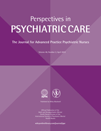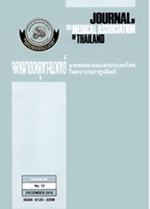ZKA-40 Eng.pdf
ZKA-40 Thai version.pdf
ZKA- 40 (Zuckerman, Kuhlman, and Aluya Personality Questionnaire; short version)
การแปลความหมาย zka-40 .pdf
(Important note: This 40-item version was developed exclusively for the Thai language due to validity issues among Thai samples and should not be applied to other languages and cultures. The details of its psychometric properties will be published soon.)
The ZKA-PQ is self-reporting scale developed by Zuckerman, Kuhlman, and Aluya. (9, 21-23) . It is a It is a 200-item instrument used to reveal personality trait based on Alternative Five-factor model (AFFM). ZKA-PQ has 5 factor, 20 facets (10 items each). Factors (and facets) include 1) Activity (work compulsion, general activity, restlessness, work energy, 2) Aggression (physical aggression, verbal aggression, anger, hostility), 3 Extraversion (positive emotions, social warmth, exhibitionism, sociability), 4) Neuroticism (anxiety, depression, dependency, low self-esteem), and 5) Sensation Seeking (thrill & adventure seeking, experience seeking, disinhibition, boredom susceptibility / impulsivity). An example of ZKA-PQ is “If I have to resort to violence to defend my rights, I can do it”. Respondents use a 4-point scale ranging from 1 (strongly disagree) to 4 (strongly agree), such that higher scores are associated with greater level of that particular trait.
The ZKA-PQ showed to that the Bifactor Model provided an adequate fit for each of the 5 factors on all indices, in that Comparative Fit Index (CFI) >= 0.95, Root Mean Square Residual (RMR) < 0.08; Standardized Root Mean square Residual (SRMR) < 0.08. Acceptable to excellent internal consistency was demonstrated (Cronbach’s alpha = 0.70-0.95), except for restlessness.
The ZKA-PQ has been validated in 23 cultures, 16 languages, with over 15000 participants (Rossier, 2013). The ZKA-PQ is free of charge. The Thai version was developed by Prof. Nahathai Wongpakaran, Professor Tinakon Wongpakaran, and Associated Professor Zsuzsana Kovi (Hungary). Permission to translate into Thai is granted by the author (Professor Aluja). For testing of psychometric property of the present Thai version, 200 –item is used.
Recently, the ZKA-PQ has been translated and validated in Thai language. It is now being under the process of getting published in scientific journal. The Thai version ZKA-PQ has been shortened. The short Thai ZKA-PQ comprises 40 items, 8 items for each domain (ZKA-PQ-40). Notably, based on the cultural difference, this short Thai- ZKA-PQ differs from the 80-item-ZKA, and factorial validity is not attained at the facet level.
Psychometric property
Preliminary investigation was conducted in 1500 subjects and showed that each domain demonstrated the following Cronbach’s alphas, Aggression = .829, Sensation Seeking = .817, Activity = .750, Extraversion = .831, Neuroticism = .854
Construct validity: ZKA-40 has been validated using Rasch analysis.
Aggression:
Person separation = 1.87, Person reliability = 0.76
Item separation = 14.84, Item reliability = 1.00
Infit MNSQ = 0.82 – 1.35; Outfit MNSQ = 0.85 – 1.35
Sensation Seeking:
Person separation = 1.79, Person reliability = 0.76
Item separation = 6.44, Item reliability = .98
Infit MNSQ = 0.74 – 1.41; Outfit MNSQ = 0.75 – 1.40
Activity:
Person separation = 1.66, Person reliability = 0.73
Item separation = 18.68, Item reliability = 1.00
Infit MNSQ = 0.85 – 1.15; Outfit MNSQ = 0.85 – 1.14
Extraversion:
Person separation = 1.60, Person reliability = 0.72
Item separation = 6.66, Item reliability = .98
Infit MNSQ = 0.76 – 1.31; Outfit MNSQ = 0.77 – 1.32
Neuroticism:
Person separation = 2.15, Person reliability = 0.82
Item separation = 9.26, Item reliability = .99
Infit MNSQ = 0.73 – 1.20; Outfit MNSQ = 0.74 – 1.23
Scoring
Reverse item 11, 13, 21 23, 24, 26, 29, 31, 34, 35, 36 before summing the scores
For example, Aggression Domain = item 25 + 37 + 18 + 22 + 28 + 39 +19 +40
|
Domain
|
Aggression
|
Sensation Seeking
|
Activity
|
Extraversion
|
Neuroticism
|
|
|
25
|
31
|
8
|
17
|
4
|
|
|
37
|
36
|
33
|
26
|
12
|
|
|
18
|
21
|
27
|
9
|
5
|
|
|
22
|
11
|
38
|
23
|
10
|
|
|
28
|
13
|
20
|
1
|
2
|
|
|
39
|
34
|
30
|
24
|
6
|
|
|
19
|
29
|
14
|
3
|
7
|
|
|
40
|
35
|
32
|
15
|
16
|
|
Cronbach’s alpha
|
.829
|
.817
|
.750
|
.749
|
.854
|
|
Raw score conversion Table
|
|
AG
|
Ts-AG
|
SS
|
Ts-SS
|
AC
|
Ts-AC
|
EX
|
Ts-EX
|
NE
|
Ts-NE
|
|
คะแนนดิบ
|
คะแนนมาตรฐาน
|
คะแนนดิบ
|
คะแนนมาตรฐาน
|
คะแนนดิบ
|
คะแนนมาตรฐาน
|
คะแนนดิบ
|
คะแนนมาตรฐาน
|
คะแนนดิบ
|
คะแนนมาตรฐาน
|
|
8
|
22
|
8
|
21
|
8
|
4
|
8
|
2
|
8
|
19
|
|
9
|
31
|
9
|
30
|
9
|
15
|
9
|
13
|
9
|
28
|
|
10
|
37
|
10
|
36
|
10
|
23
|
10
|
20
|
10
|
33
|
|
11
|
40
|
11
|
39
|
11
|
27
|
11
|
23
|
11
|
36
|
|
12
|
43
|
12
|
42
|
12
|
30
|
12
|
27
|
12
|
39
|
|
13
|
46
|
13
|
45
|
13
|
30
|
13
|
30
|
13
|
39
|
|
14
|
46
|
14
|
45
|
14
|
34
|
14
|
30
|
14
|
42
|
|
15
|
49
|
15
|
48
|
15
|
38
|
15
|
34
|
15
|
44
|
|
16
|
49
|
16
|
51
|
16
|
38
|
16
|
37
|
16
|
44
|
|
17
|
52
|
17
|
54
|
17
|
42
|
17
|
37
|
17
|
47
|
|
18
|
55
|
18
|
54
|
18
|
45
|
18
|
41
|
18
|
50
|
|
19
|
55
|
19
|
57
|
19
|
45
|
19
|
41
|
19
|
50
|
|
20
|
58
|
20
|
60
|
20
|
49
|
20
|
44
|
20
|
53
|
|
21
|
58
|
21
|
60
|
21
|
49
|
21
|
44
|
21
|
53
|
|
22
|
61
|
22
|
63
|
22
|
53
|
22
|
48
|
22
|
56
|
|
23
|
61
|
23
|
63
|
23
|
53
|
23
|
48
|
23
|
58
|
|
24
|
64
|
24
|
66
|
24
|
56
|
24
|
51
|
24
|
58
|
|
25
|
67
|
25
|
69
|
25
|
60
|
25
|
55
|
25
|
61
|
|
26
|
67
|
26
|
69
|
26
|
60
|
26
|
55
|
26
|
64
|
|
27
|
69
|
27
|
72
|
27
|
64
|
27
|
58
|
27
|
64
|
|
28
|
72
|
28
|
75
|
28
|
68
|
28
|
62
|
28
|
67
|
|
29
|
75
|
29
|
75
|
29
|
71
|
29
|
65
|
29
|
70
|
|
30
|
78
|
30
|
78
|
30
|
75
|
30
|
69
|
30
|
73
|
|
31
|
84
|
31
|
84
|
31
|
83
|
31
|
76
|
31
|
78
|
|
32
|
93
|
32
|
94
|
32
|
94
|
32
|
86
|
32
|
87
|
Interpretation
The score ranges from 8-32 for each domain. The higher score indicates the higher level of that respective trait. The interpretation using T-score by Aluja, Kuhlman and Zuckerman (2010) can be found above (In Thai). For the Thai population, we suggest converting the raw score of each domain of ZKA-40 into T-score before interpreting.
Permission to use ZKA-40: please contact Prof. Nahathai Wongpakaran nahathai.wongpakaran@cmu.ac.th , or Professor Tinakon Wongpakaran tinakon.w@cmu.ac.th












